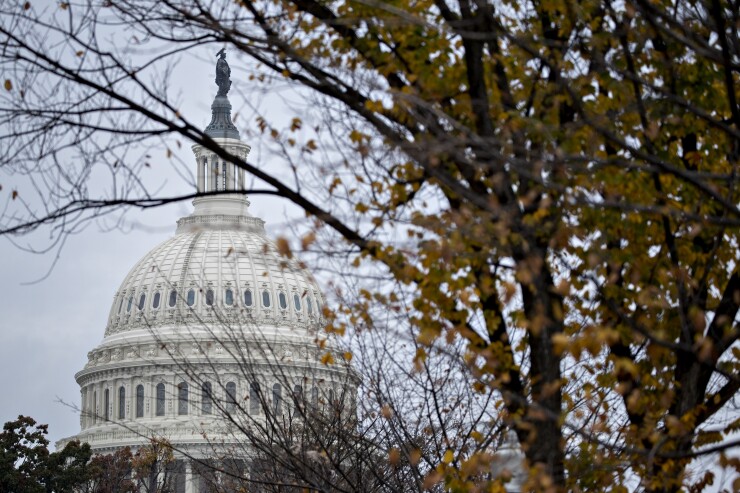The controversial Cadillac tax on the most expensive employer-sponsored health insurance plans would be delayed another two years under the latest Congressional funding plan, currently passed by the House but stalled in the Senate.
Employee and benefit groups applauded inclusion of the measure to delay the tax until 2022, which has been one of their
"The inclusion of a critical two-year delay of the 40% Cadillac tax in the proposed government funding bill is an encouraging sign that our message is breaking through," American Benefits Council President James A. Klein says. "Employer-sponsored benefits are the bedrock of the nation's health coverage system and we are gratified Congress is recognizing that by delaying this tax.”

Although the Senate was unable to reach a deal to keep the government open by the Friday midnight deadline, broker organizations which have lobbied for the measure for years expect it will still be included in legislation once Senators are able to make a deal.
"[T]he legislative effort to delay the harmful effects of the Cadillac tax will resume when the government reopens,” predicts Kevin Mayeux, president of the National Association of Insurance and Financial Advisors.
The only ACA provision rolled back last year by the new Republican Congress in their
"We understand there is a lot at stake in the ongoing spending negotiations,” Klein says. “But delay of the so-called 'Cadillac tax' is simple and uncontroversial. We encourage lawmakers to enact this provision as soon as possible."
Also see: “
The tax was included as part of the ACA in an attempt to discourage workers from over-consuming healthcare. The idea was that many buy unnecessarily expensive plans, since they are not taxed on those earnings applied to premium costs.
But opponents argued the 40% rate on employers that offer those plans was punitive, since it is much higher than the average tax rate paid by middle-income workers.
The tax was originally set to take effect in 2018, but was then was postponed until 2020.
The latest spending bill, should it pass the Senate, also would suspend taxes on health insurance for one year and on medical devices for two.
As for the ultimate fate of the Cadillac tax, Joel Wood, senior vice president of government affairs at the Council of Insurance Agents & Brokers, is glad it remains in the political discussion.
"Political ploy or not, it keeps this issue at the forefront. Sure, we need it to ultimately be gone from the lexicon, and no broker can do anything but counsel their clients to prepare for its implementation, whether next year, or a couple years down the road," he says. "It’s tempting to express more frustration with how the Cadillac tax has been a political football, but we’re optimistic that amid the acrimony and polarization that characterizes D.C. these days, [including it in legislation] was this one good development this week."





